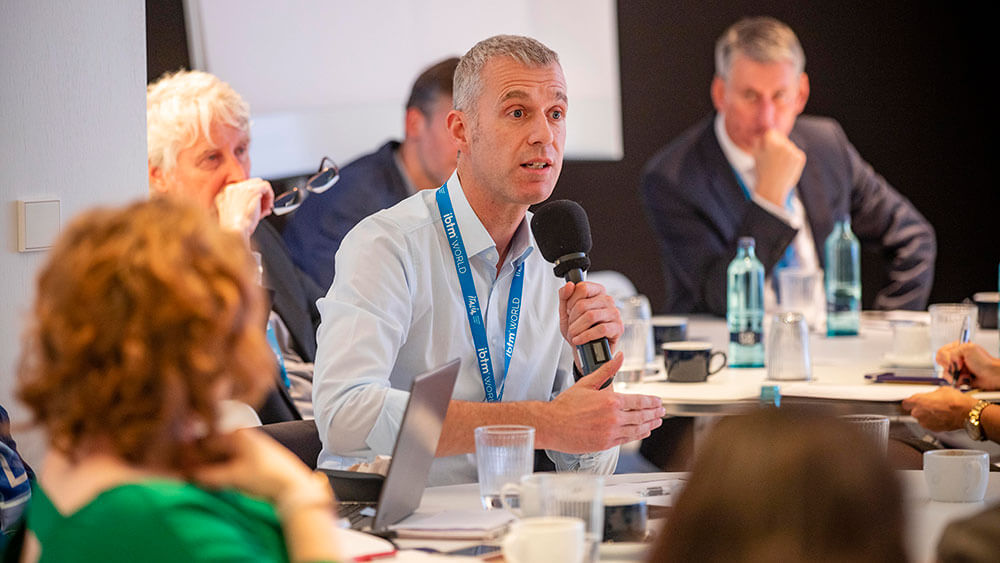
Kai Hattendorf, managing director and CEO of UFI, speaks about sustainability at the IBTM World Global Policy & Practice Forum 2019. (Edward Hill Photography for IBTM)

Michelle Russell
In December, scientists reported the discovery of cave art in Indonesia, estimated to be at least 44,000 years old — the oldest pictorial record of storytelling in the world. It’s proof that we are predisposed to invent, tell, and consume stories, no less so today than when our ancestors were cave dwellers. The power of storytelling connects a few of our articles this month, including its role in destination and event branding in our cover and CMP Series story and making data understandable in Data.
So, what’s the story we tell about the business events industry? Our narrative requires a major shift, agreed participants at the first edition of the IBTM World Global Policy & Practice Forum, held in partnership with The Business of Events and just prior to IBTM World in Barcelona on Nov. 18. The forum was supported by the Barcelona Convention Bureau, PCMA, and the Joint Meetings Industry Council (JMIC), which produced a video of some of the forum’s highlights in its “The Iceberg” series.
Simon Hughes, Business Visits and Events Partnership’s vice chair, set the tone by asking the small group to do “some really constructive thinking about how we move business events away from just being something that takes place and leaves a few hotel rooms full and a few restaurants a bit better off into something that makes real social change and drives real economic success.”
Kai Hattendorf, managing director and CEO of UFI, the Global Association of the Exhibition Industry, said that we need to tell a better story about sustainability in the events industry. It’s a mistake, he said, to only talk about ecology, and ignore two other dimensions: social and the economy. “This is what’s driving the discussion right now,” Hattendorf told the group. “This is why we have flight shaming. If we have flight shaming, we will have venue shaming. If we have venue shaming, we will have event shaming at some point.”
We need to be prepared for those conversations by understanding that while “there’s a footprint for every major event we are putting on,” he said, “the price we pay” — especially when we mitigate our environmental impact — “is offset by the benefit of the event.” The equation we need to draw, he said, is how many visits around the world it would take for an attendee to see all the business contacts who are at a single event. “So there’s a strong argument to be made,” he said, “that meetings themselves are the most sustainable way to do business.”
Moreover, he said, we need to speak to events’ sustainable development in terms of an event’s impact on societies, and the value and legacy it generates. We should use “the biggest existing framework” — the United Nations Sustainable Development Goals — in the way we approach events. The 17 UNSDGs go into the ecology, the economy, and social, he said, and they have the buy-in of institutions, governments, “and lots of companies, trying to prove that they are part of the solution of the more sustainable development of the planet.”
Using this framework, “we can be very relaxed,” Hattendorf said, “for whatever shaming discussion comes our way — and will come our way one way or the other.”
